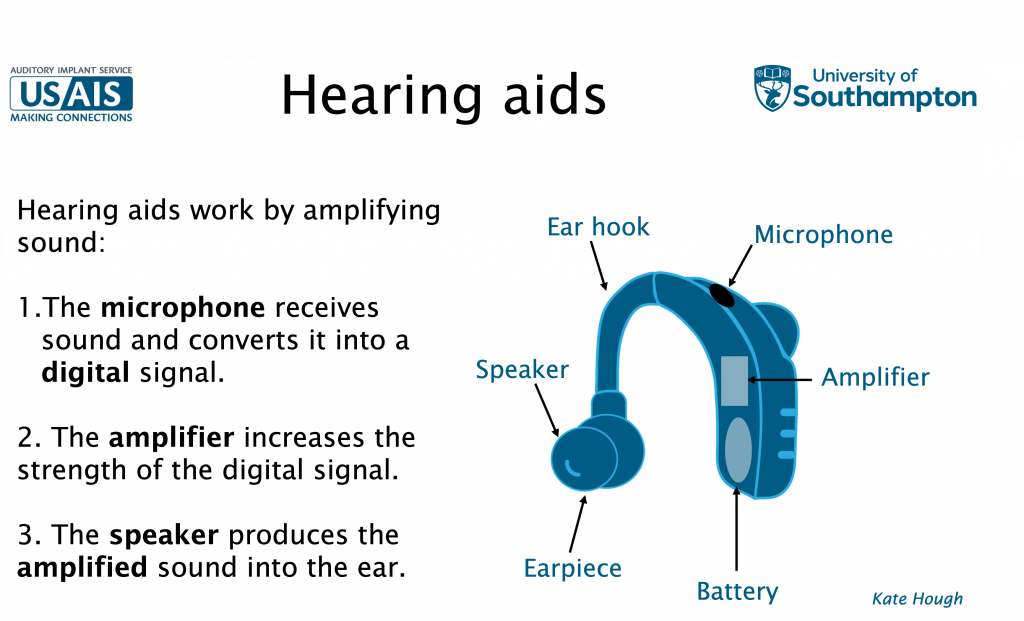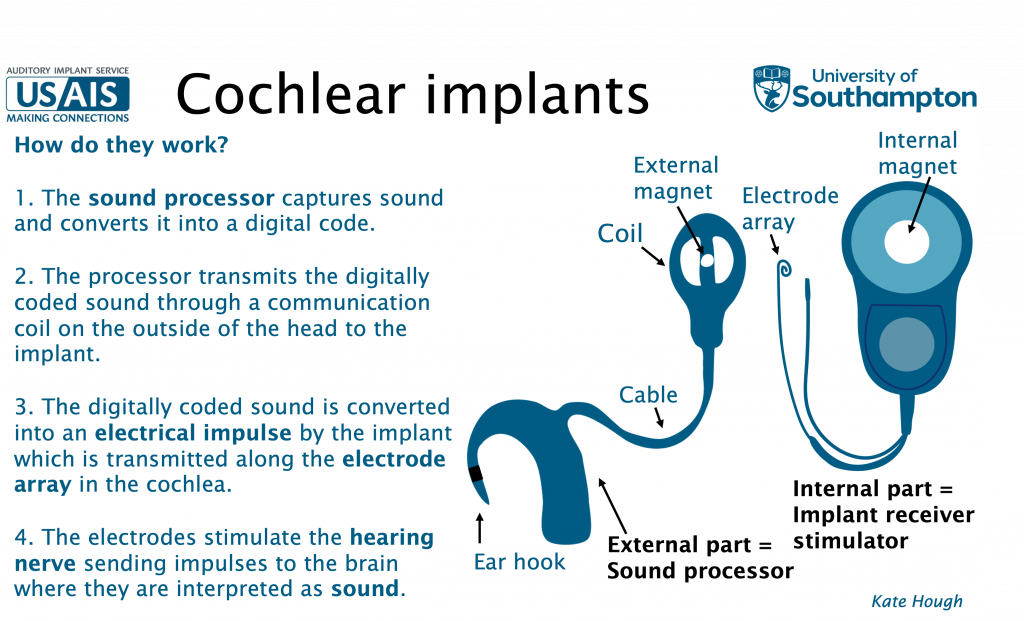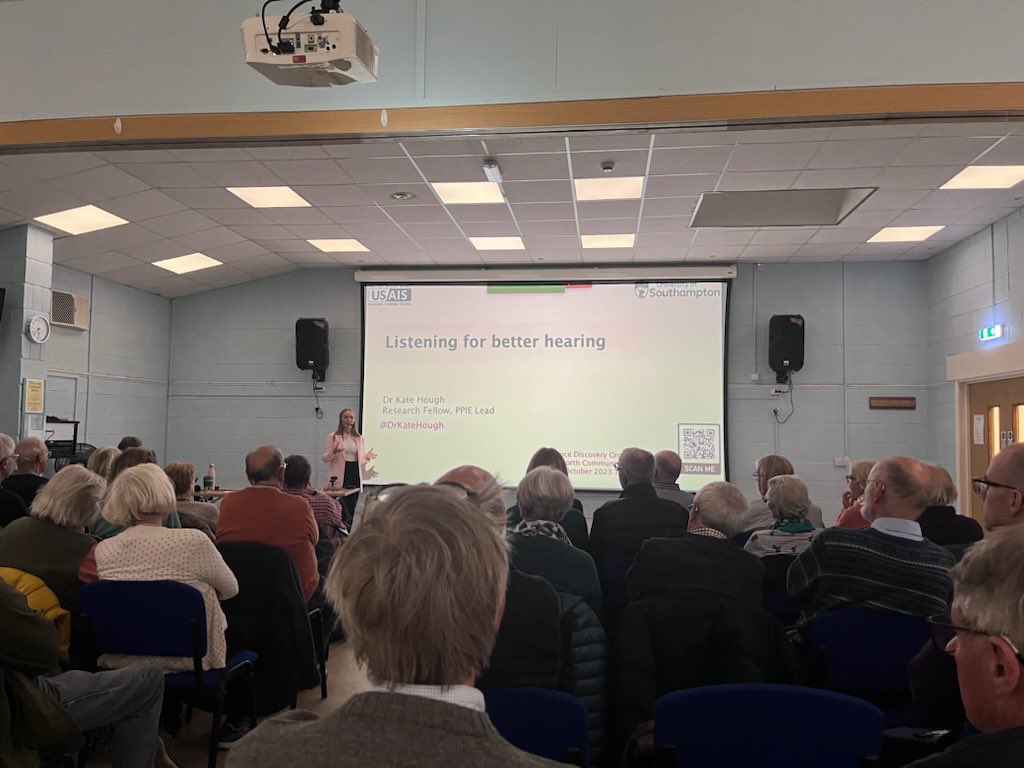About hearing health.
We all have a unique hearing trajectory as we go through life. How we live our lives can influence this trajectory. If there is a decline in your hearing capacity, you will have a hearing loss. Different degrees of hearing loss include mild, moderate, severe to profound. Hearing interventions: Hearing impairment can be addressed by hearing interventions such as hearing aids or cochlear implants.
Hearing aids act as a microphone and amplify sounds. Hearing aids can be beneficial for people with mild to moderate hearing loss. Link to NHS website about hearing aids and implants.


What is a cochlear implant?
Cochlear implants are an intervention to address severe to profound deafness and hearing loss for both children and adults.
What is a cochlear implant made up from?
Two main components: a sound processor worn externally behind the ear, and an implanted receiver-stimulator which is surgically recessed into the bone of the skull and secured under the skin. The batteries powering the device are housed in the external processor unit. The electrode array projecting from the receiver-stimulator unit is inserted into the cochlea through the round window, or just beside the round window, via a cochleostomy.
How does a cochlear implant work?
- The process begins when the sound processor detects and captures environmental sound and converts it into a digital code.
- The processor transmits the digitally coded sound through a communication coil on the outside of the head to the implant.
- The digitally coded sound is converted into an electrical impulse by the implant which is transmitted along the electrode array in the cochlea.
- The hearing nerve is stimulated by the electrode, sending impulses to the brain where they are interpreted as sound.
Cochlear implants are beneficial for people who have very little to no hearing function, giving them the ability to communicate, listen to music and succeed in a work environment.
Resources:

Click on the link below to watch a lecture given by Dr Kate Hough about the work we have been doing in our group to raise awareness of the links between hearing and brain health and the importance of hearing interventions such as hearing aids and cochlear implant. The lecture was given at the Science Discovery Group on Monday 16th October 2023.
University of Southampton Auditory Implant Service (USAIS)
British Cochlear Implant Group (BCIG)
National Cochlear Implant Users Association
Cochlear Implant International Community of Action – CIICA
Hearing and brain health
Unaddressed hearing loss is the biggest modifiable risk factor for dementia.
It is recommended that when people reach midlife and older, they get regular hearing tests. And if you are prescribed a hearing aid, you should make sure to wear it. Addressing your hearing health is not only beneficial for mental and emotional wellbeing, it is also beneficial for your cognitive health.
To get a hearing test on the NHS, you should book an appointment with your GP.
To get a private hearing test, you can book an appointment at various places including Boots and Specsavers (you may need to pay for the test).

Click here to watch a conversation between Dr Kate Hough and Dr Kellyn Lee from the Dementia Care Hub about hearing loss and dementia, recorded in November 2023.
Click here for a Hearing Loss Simulator where you will hear what it sounds like to have different types of hearing loss and how a hearing aid can make a difference.
For more information and resources about the links between hearing and brain health, check out this page and look at the links below.
Resources:
Videos:
Leaflets:
Understanding hearing and sight problems and their link to dementia.
Check out the Know Your Hearing Number campaign launched by the The Johns Hopkins Cochlear Center for Hearing and Public Health to find out why it is important to know your hearing number.



